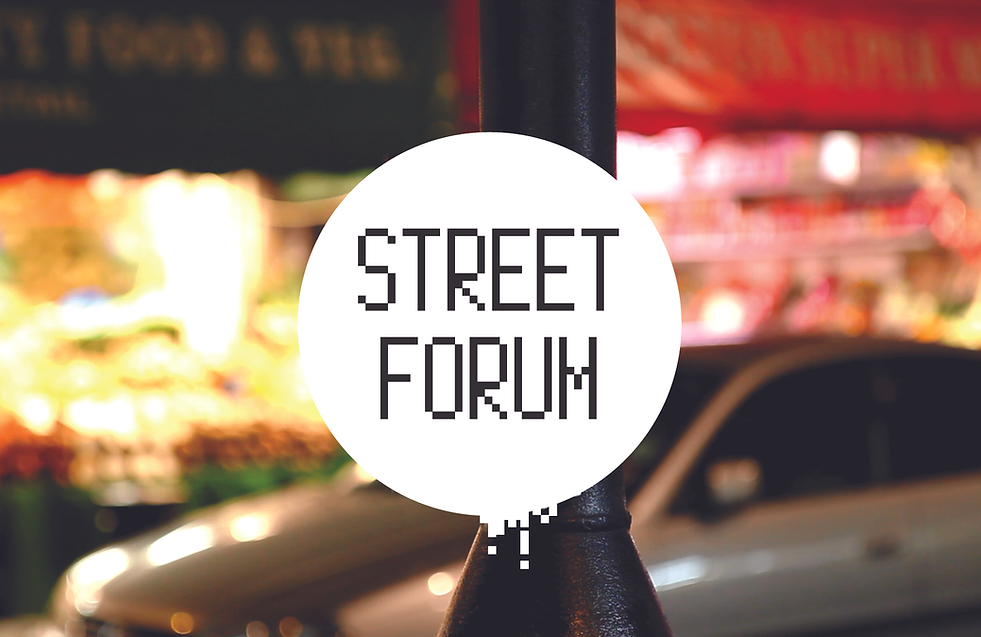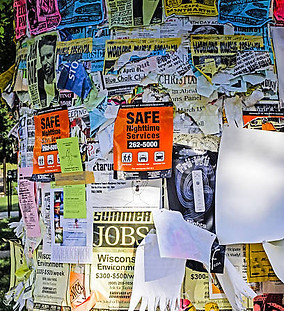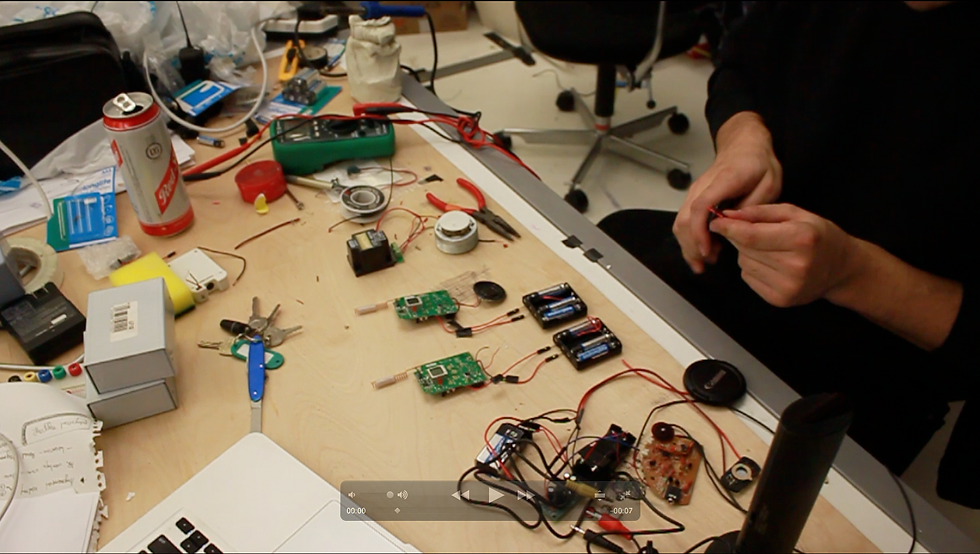.png)
Street Forum
Street Forum is an experimental platform that utilises the concept of location-specific information and guerrilla design to encourage discussion and amplify public sentiment within the city.
We were interested in how the ever-increasing complexity of the world around us affected ....... this is an experimental project about social participation and engagement.
My Role
It was a RCA group project. As an interaction designer I involved in the entire project from finding a problem to design fabrication. I didn't write entire code but I was participating hardware and software development.
Problem
The city is changing and evolving all the time. But how are people connected to these changes? How aware are people of the changes going on around them and the dynamic communities of which they are a part?


Hypothesis
Q: What if physical spaces were designed to be platforms for local discussion and served as entry-points to broader digital conversations?
If we create an object within the urban environment that embodies a specific conversation topic or issue, this object would become a forum for local citizen participation.
Early experiment
How could we facilitate community-driven dialogue around issues within their local context?

Question A
What are the semantics that would encourage you to engage in dialogue with public objects?
Key insights
Need for immediate feedback,
clear instructions,
factor of play,
curiosity
Location
Brixton Market. It has a mixed and vivid local community.
Spec
An eye catching tweeter bird is attached on the street infrastructure. As soon as the user press the record button a recorder start to record a sound.
Recorder, Mic, external buttons. eye catching Tweeter bird

Question B
Could location specific memories stimulate dialogue within a local community?
Key insights
Granularity (multiple levels) of participation, familiarity of existing objects ,
context affects the message
Location
Hyde park. The most touristic area.
Spec
As soon as a user sits on the bench the white bar sense a weight and automatically starts an audio file from a recorder.
Born conductive speaker connected to pressure sensor, recorder.

Question C
If you transpose the format of a digital forum into its physical context, it will attract the relevant stakeholders & experts.
Key insights
Local insights & expertise,
social proof,
interest in follow-up
people building on each others ideas.
Location
At a closed venue. It used be a pub.
Spec
A simple chalk board with the input guide.
Key Insight
Physical context & attracting
‘local experts’
Visual aggregation
Multiple levels of participation (granularity)
Immediacy in feedback
Guidance
Curiosity, public spectacle
Non-permanent/invasive
Key Concept
Complexity
Wicked Problems
The ‘Structures of
Participation’
The Pioneer (who takes the first step?)
Connected Society - the collaborative potential of the internet?
BUT.. why build a physical interface?
"Location specific posts have more weight than remote ones.
It has a role of the local person of curating or filtering."
Last experiment & final design
By manifesting public sentiment within its physical context, we can facilitate dialogue between relevant local stakeholders.
Dialogue
We narrow downed to 3 popular tools of community led open conversation/debate to experiment our final interaction design.
Accommodate different kinds of dialogue (by a family of objects or different modes);
1. Announcement, event, invitation (one way, temporary info)
2. Discussion about a topic (dialogue, one particular topic, multiple participants)
3. Vote, petition, etc. (accumulation of simple inputs)



Announcement board is a surface intended for the posting of public messages, for example, to advertise items wanted or for sale, announce events, or provide information.
Speakers here may talk on any subject, as long as the police consider their speeches lawful, although this right is not restricted to Speakers' Corner only. Contrary to popular belief, there is no immunity from the law, nor are any subjects proscribed, but in practice the police intervene only when they receive a complaint.
The object will...
-
Allow anyone to start a conversation, anywhere
-
Allow anyone to listen to and add to a conversation
-
Trigger/encourage participation of by-passers
-
Manifest (embody) the progression/dynamic of the conversation (growing, changing, travelling, etc.)
-
Provide both a physical and a digital way of accessing the conversation
-
Connect to the internet (for longevity of the conversation)
-
Encourage dialogue through physical intervention, creating discourse about issues directly associated with the object by location.
-
There will be only one thread (topic) per object. This will be set by the "pioneer" and can be removed only by them.
Street engagement test
The Announcement
(“the notice-board”)
One-way ‘tagging’ of an issue

People took note, but not enough!
The Petition
Collecting signatures for a proposal.

Not sufficiently big, didn’t draw attention to itself enough.
The Discussion
Providing a platform for open discussion of an issue in its relevant physical context.

Scale, curiosity factor drew attention. interactivity + flexibility allowed for multiple levels of interaction (i.e. it achieved it’s goal even if people didn’t ineract with it - people notice it!)
Conclusion
We did these experiments primarily as a way of exploring, through making, the potential of a family of ‘parasites’ to create public discussion.
In the end, we recognised the importance of flexibility - the concept of a platform! The importance of providing something that simply placed a conversation into its physical context and thereby allowed for its meaning to define itself, entirely by attracting appropriate stakeholders and experts.
This, coupled with the insight that amplification/aggregation is vital to achieving large-scale engagement, led us onto the development of our final experimental concept.
Appendix
Making, Testing process, Exhibition images








